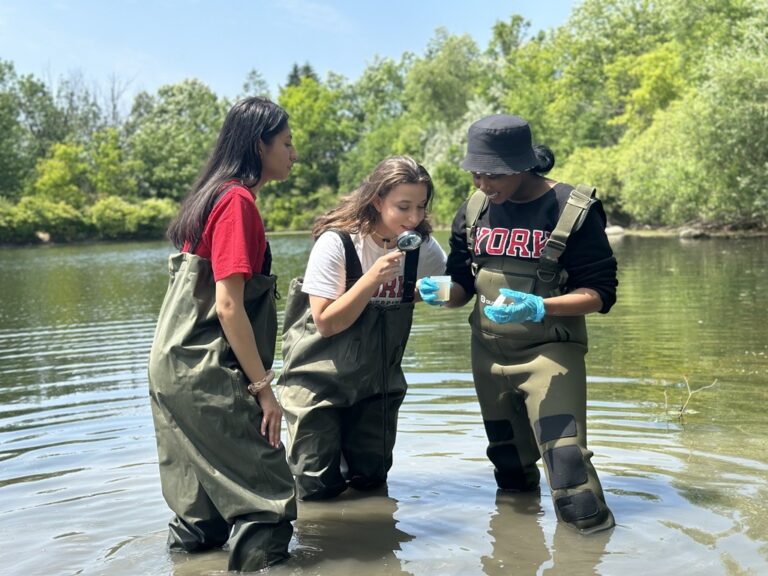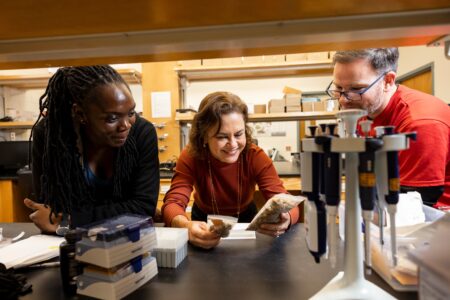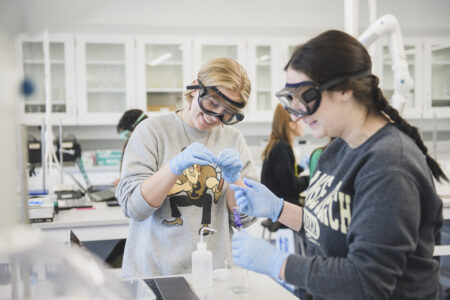
Climate change, microplastics, energy challenges, and sustainable urban development — these are among the most urgent issues confronting humanity today. Consider this: global temperatures have risen by 1.2°C since pre-industrial times, and 11 million metric tons of plastics enter our ocean annually. Meanwhile, energy demand is projected to increase by nearly 50% by 2050, and 68% of the world’s population is expected to live in urban areas by the same year. It’s a lot to solve and each of these challenges brings distinct threats to our environment, health, and way of life.
The good news is universities are stepping up to combat these issues. One key way they do this is by nurturing the policymakers and leaders of tomorrow. They play a vital role in shaping students with the skills and knowledge necessary for meaningful change. Here are four universities taking charge in the fight for a cleaner, safer, and more sustainable future. After all, there is no planet B. The time to act is now.

York students can gain a global perspective by exploring the Las Nubes EcoCampus’s unique learning environment in Costa Rica. Source: York University
York University
There are many reasons why York University ranks among the world’s top 35 or why over 9,600 international students have chosen it as their launchpad to success. A common factor is its reputation as a unique and dynamic force for positive change. For example, its Faculty of Environmental & Urban Change (EUC) is the only of its kind globally to offer an education that is not only student-centric and research-intensive but also deeply committed to inclusivity and social impact. At the core of this commitment is the mobilization of knowledge for both people and the planet.
With the launch of a co-op programme in Fall 2024 and a commitment to hands-on, experiential learning in every course, the Faculty’s students are prepared to tackle real-world challenges from day one. Opportunities for global study, like an experience at the Las Nubes EcoCampus in Costa Rica, further enrich their learning.
One qualification that unlocks this exposure is the Cities, Regions, Planning (BES). In this programme, students engage with inclusive and sustainable planning practices while learning to navigate the complexities of urban growth, infrastructure provision, and environmental mitigation. The Global Geography (BA) is a better fit for anyone looking to explore the intricate connections between human societies and physical environments. It focuses on global processes such as urbanisation, migration, and environmental change, drawing on interdisciplinary approaches from social sciences, humanities, and physical sciences.
On either route, students can elevate their expertise with EUC’s 3+2 pathway, which links three years of undergraduate study in key disciplines with two years of graduate study in the Master in Environmental Studies (MES) programme. Learn how else the EUC transforms knowledge into actionable solutions.

With over 600,000 alumni, Purdue offers academic advising, tutoring, job placement services and more that guide students towards their goals. Source: Purdue University
Purdue University
Purdue University has a history of empowering students to make their mark on the world. Founded over 150 years ago, the university has earned its reputation as the fourth most trusted public university and the seventh best value school in the US.
Purdue’s colleges and schools are dedicated to preparing students for a competitive job market through a diverse range of academic offerings. The College of Agriculture offers a natural resources and environmental science major, while the College of Science provides programmes in environmental geosciences, as well as ecology, evolution, and environmental sciences.
The College of Engineering offers a major in environmental and ecological engineering. Meanwhile, the Environmental and Natural Resources Engineering major in the Agricultural and Biological Engineering (ABE) Department has multiple entry paths, ensuring students have the flexibility to pursue their passions.
These programmes are informed by the research taking place at Purdue University’s over 400 research labs that drive global change and improve lives across industries. The university’s pursuit of innovation has earned it a place among the world’s top-ranked research universities and recognition as one of the top 10 most innovative schools in the US for six consecutive years.

The University of California, Irvine is shaping the lives and careers of 36,000 students through its 224 undergraduate and graduate degree programmes. Source: University of California, Irvine
University of California, Irvine
Another university with a long history of academic excellence is the University of California, Irvine. Established in 1965, the university’s mission is to improve communities and lives through rigorous academics, advanced research, and dedicated public service. Today, the university is among the US’s top 10 public universities (US. News & World Report and Forbes) and is one of 71 universities in the US and Canada to become a member of the prestigious Association of American Universities.
The School of Social Ecology at UC Irvine is a global leader in producing researchers dedicated to shaping a better and safer world. With over 20,000 alumni around the world, the school’s three departments – criminology, law and society, urban planning and public policy (UPPP) and psychological science — share a commitment to interdisciplinary research that addresses pressing social issues. Faculty and students explore global poverty, prison overcrowding, gang violence, and community empowerment, seeking to inform social action and foster positive change.
The UPPP, for example, offers two undergraduate majors: the Bachelor of Arts in Urban Studies and the Bachelor of Arts in Environmental Science and Policy. These programmes focus on addressing an array of urban-related problems, such as land use and transportation, housing, and more, improving the livelihoods of individuals, neighbourhoods, communities, and regions.

The University of Tampa welcomes 1,200 students from 130 countries. Source: The University of Tampa
The University of Tampa
The University of Tampa is among the nation’s best 389 institutions for undergraduate education (only 15% of colleges in the US can share this honour). Home to over 11,000 students, the university prepares graduates to be successful, contributing members of the global community through world-class academic programmes, personalised attention and hands-on experience.
One of the university’s standout colleges is the College of Natural and Health Sciences. It offers a quality curriculum that embodies its motto: Connect – Transform – Succeed. Students of its Department of Environmental Studies, for instance, can major in a Bachelor of Science in Environmental Studies or a Bachelor of Arts in Environmental Studies. These programmes incorporate natural and social sciences, as well as arts and humanities, teaching students to become future informed stewards of our planet.
The university’s commitment to experiential learning is evident in its various academic programmes, including those offered by the College of Natural and Health Sciences. Students are encouraged to apply what they’ve learnt in the classroom to solve real-world issues. Coupled with the university’s comprehensive career services and supportive community, it’s no surprise that the university’s alumni are able to earn an average salary of US$51,000 salary within a year of graduation.
*Some of the institutions featured in this article are commercial partners of Study International










